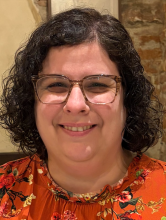
Still Accepting Applications
The data science revolution is changing how we use statistical analysis to address important social questions. In this flexible-credit program, you will learn advanced quantitative research techniques and apply them to critical policy issues across the social, behavioral, and health sciences, preparing for a career as an applied statistician or data scientist or for doctoral study.
Request Info
Degree Details
Official Degree Title
You will tailor your studies in one of our concentrations to meet your particular interests in the field of applied statistics.
Data Science for Social Impact
Prepare to build research-practice partnerships, become knowledgeable of ethical concerns surrounding data collection and use, and communicate effectively and succinctly research findings and their implications. This is one of the first degree programs in the world to focus on the real-world challenges of using data to inform policy and practice.
Computational Methods
You will experience more rigorous training in methodological theory and development, which is particularly appropriate if you wish to progress to a PhD program in statistics, economics, or computer science.
Measurement, Methodology, and Design
This concentration provides students with the core skills they need to collect meaningful, reliable, and valid data so that they can confidently analyze and interpret data and draw sound conclusions.
General Applied Statistics
This concentration offers maximal flexibility, allowing you to customize your studies by selecting from a broad set of statistics and related courses. You can pursue careers in industry, research, and doctoral programs that are consistent with your course work and internship experiences.
Your courses will consist of theoretical foundations, statistical inference and generalized linear models, causal inference, survey research methods, messy data and machine learning, applied statistics electives, and a small number of unrestricted electives. Data analysis projects will prepare you to undertake research and make data-based decisions and assessments.
You will choose course work that prepares you for your career, with specific credits dedicated to thematic concentrations in Computational Methods, Data Science for Social Impact, or General Applied Statistics.
You have the option to obtain academic credit for an internship through the internship course. You will gain real work experience and practice your skills through internships in the private or public sectors, while earning elective credit.
You will be able to apply the skills you learn to address policy issues and social problems through the consulting research seminar. You also will work closely with faculty on research projects.
Our faculty members have worked in policy and advocacy organizations in fields including public health, politics, psychology and psychometrics, demography, sociology, labor markets, and education.
Prepare for a career as an applied statistician and data scientist in the private or public sector, working in fields such as psychology, education, political science, public policy, media research, and healthcare. You'll also be ready for further academic study in a variety of academic disciplines that require quantitative analysis.
You'll be prepared to:
- Help shape the design of a research project or study
- Play an important role in implementing the study or survey
- Be responsible for collecting, organizing, and analyzing the data from various primary and/or secondary resources
- Help develop guidelines or protocols for collecting the data and extrapolating findings from the data
- Work with sophisticated data management and statistical software to undertake your analyses and write reports on your findings
- Explain past behavior, identify likely outcomes and scenarios, explore future trends, and make projections
Our alumni are working in organizations such as: International Rescue Committee, The New York State Attorney General’s Office, Two Sigma, Harvard Center for Education Policy Research, Vera Institute for Justice, Center for Policing Equity, and the Research Alliance for New York City Schools.
Program Benefits for International Students
If you’re an international student, you may be able to work in the United States after graduation for an extended period of time. Most students studying on F-1 visas will be eligible for 12 months of Optional Practical Training (OPT) off-campus work authorization. F-1 students in our program may also be eligible for the STEM (Science, Technology, Engineering, or Mathematics) OPT extension, allowing you to extend your time in the United States to pursue degree-related work experience for a total of 36 months or 3 years. For more information on who can apply for this extension visit NYU’s Office of Global Services: STEM OPT.
Questions
If you have any additional questions about our degree, please feel free to contact us at steinhardt.a3sr@nyu.edu.
Alumni
Our alumni are making an impact in careers working with data at research centers, government offices, and health organizations. Read more about our Alumni.

My passion for rigorous methods in the math classroom, along with my experiences volunteering and fundraising, made me realize I wanted my learning to have a greater social impact. I was inspired to pursue a degree in Applied Statistics for Social Science Research because it allowed me to ground my quantitative skills in social applications while also learning methods used by social scientists and methodologists in research.
Faculty
Take the Next Step
Advance your personal and professional journey – apply to join our community of students.
Apply Now







